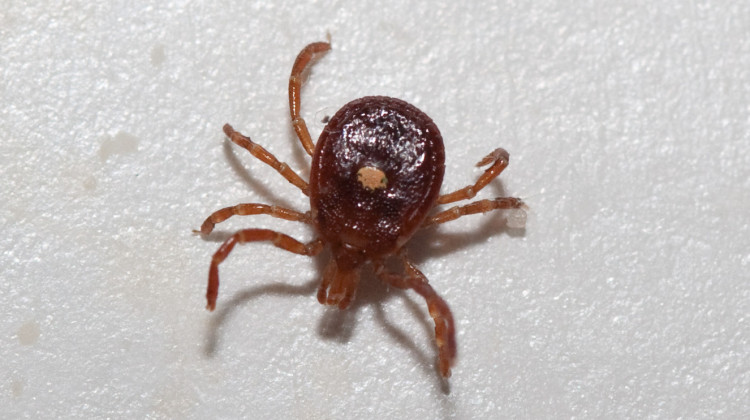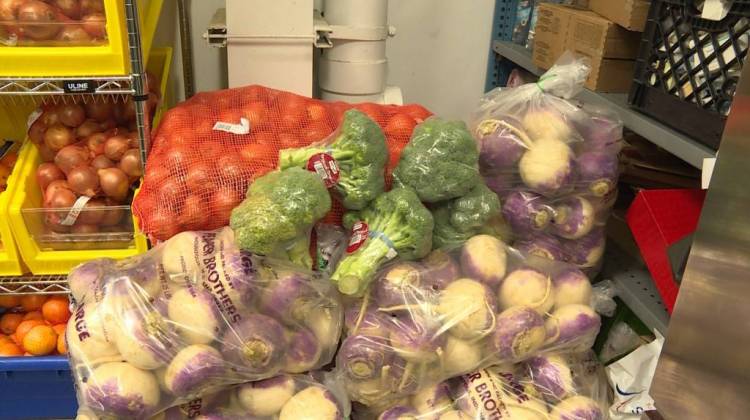
Nine different diseases have been identified in ticks in Indiana including Rocky Mountain spotted fever and Lyme disease.
Elizabeth Nicodemus/FlickrA project to track ticks in Indiana hosted student scientists at Purdue University last week. The students have been involved in the statewide collection of ticks to better understand what diseases they carry.
Purdue University entomology professor Catherine Hill leads the project. She says a better understanding of what else is inside a tick influences diagnosis and treatment.
"We always think about one tick bite, one pathogen, one disease and that’s not really the case," says Hill.
The Tick INsider project was created because so many Hoosiers reported difficulty getting an accurate right diagnosis. "What we’re beginning to understand is that ticks are filled with lots of different bacteria and probably some parasites and protozoa and viruses," says Hill.
These factors are influenced by what animal the tick feeds on.
The students visited the Purdue labs to learn about how the analysis works.
Hill says students are drawn to this opportunity because of the intersection of environment, entomology and health. Another class of student scientists will be recruited next year.
Nine different diseases have been identified in ticks in Indiana including Rocky Mountain spotted fever and Lyme disease.
 DONATE
DONATE







 Support WFYI. We can't do it without you.
Support WFYI. We can't do it without you.